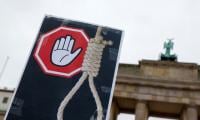ISLAMABAD: In a major development, the NAB prosecutor in Nawaz Sharif case says the ‘competent authority’ — the executive board of the National Accountability Bureau (NAB) — has not asked him to file an appeal with the high court against part of the accountability court judgement declaring that the prosecution couldn’t prove the charges of corruption and dishonesty against the former prime minister.
“An appeal could have been filed within 10 days of the announcement of judgement, but we couldn’t file it on our own. The decision to file an appeal against an order of the accountability court is taken by the competent authority,” NAB Deputy Prosecutor General (DPG) Sardar Muzaffar told The News.
Under the NAB law, the bureau has the right to appeal this part of the verdict but the competent authority has decided not to file an appeal on this count.
In an interview with The News, Muzaffar Abbasi said Nawaz Sharif was convicted under Section 9(a)(v) of the NAB Ordinance, as he could not give account of the resources to purchase the London flats and that this also falls in the definition of corruption and corrupt practices under the NAB law.
Muzaffar admitted that the charge of corruption under Section 9(a)(iv) was also part of the NAB charge sheet against Nawaz but the court did not admit it.
When told that following the latest judgments of superior judiciary Section 9(a)(v) had become redundant as even the Supreme Court had held that link of any property had to be established with commission of crime of corruption, he responded these judgments link Section 9(a)(v) with Section 9(a)(vi) and not with Section 9(a)(iv) as being interpreted in the media.
“Our case was based on the charge that during investigations before the Panama Joint Investigation Team (JIT) Nawaz Sharif couldn’t give an account of the resources to purchase London flats in early nineties and was guilty under Section 9(a)(v),” Muzaffar said, adding, “The court has acknowledged our basic argument and convicted the accused persons”.
Asked whether or not the charge of corruption and dishonesty levelled under Section 9(a)(iv) was part of NAB charge sheet against Nawaz Sharif, Muzaffar said, “Yes, Nawaz Sharif was indicted under Section 9(a)(iv) and was acquitted of this charge”.
Contrary to Abbasi’s view, the superior courts have held that four basic ingredients have to be proved for conviction of an accused under Section 9(a)(v) of NAB Ordinance.
Senior most judge of the Supreme Court Justice Asif Saeed Khan Khosa had authored the judgement in the case of Ghani-ur-Rehman vs NAB (PLD 2011 Supreme Court 1144). Justice (R) Tassaduq Hussain Jillani and Justice (R) Mahmood Akhtar Shahid Siddiqui were also part of the bench.
Justice Khosa had held that mere possession of any pecuniary resources or property was by itself not an offence, but failure to satisfactorily account for such possession of pecuniary resources or property that makes the possession objectionable and constitute offence.
Keeping all this debate and viewpoint of NAB prosecutor aside, it is important to mention here that Nawaz Sharif in his replies before the court hasn’t admitted the ownership of London flats and submitted that these flats were acquired by his father as a result of a known foreign investment and were transferred in the ownership of his son Hussain Nawaz in 2006 as inheritance. But, the JIT and NAB, without producing any evidence, insisted that these flats were purchased by Nawaz Sharif himself in early nineties and the accountability court held that it can be presumed that flats were purchased by Nawaz Sharif.
However, when The News contacted senior lawyer Ikraam Chaudhry and explained him view point of NAB prosecutor and ingredients given in the Justice Khosa judgement, he replied that though the standard set in Justice Khosa verdict of connecting the purchase of property with the crime of corruption was not established in this case but still the Sharif family was not able to provide complete detail of money trail to purchase these properties.
Ikraam said that in his view the conditions required under the law for the conviction under section 9(a)(v) were fulfilled.
Report was picked up by CNBC, triggering rapid market rally
Trump threatened additional 50% tariffs after China retaliated for last week’s tariffs
Officers met additional chief secretary Punjab, in presence of senior departmental secretaries
ECC reviewed and approved several Technical Supplementary Grants for ongoing projects and initiatives
Secretary-General of , Dr Asad Majeed Khan, will arrive to attend Lahore meeting,” says FO
Project groundbreaking was carried out by CM Maryam and Army Chief General Asim Munir on 15-2-2025







